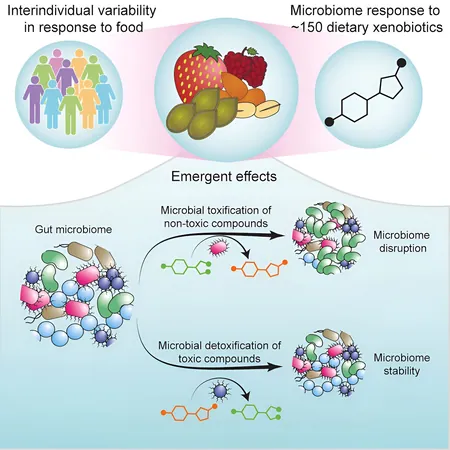
Baby Boomers Living Longer, But Health Woes Increase — Shocking New Study Reveals Alarming Trends!
2024-10-06
Author: Michael
Introduction
A groundbreaking study from researchers at University College London (UCL) and the University of Oxford has unveiled a startling trend: individuals in their 50s and 60s today are facing far worse health challenges than those from previous generations who were born during or before World War II.
Health Trends Among Baby Boomers
The findings challenge the common assumption that increased life expectancy equates to better health. Instead, rising rates of obesity, diabetes, and other chronic diseases are taking their toll at increasingly younger ages. While mental health issues have been recognized as a contributing factor, this new investigation paints a broader picture of deteriorating health among younger baby boomers.
Publication and Research Insights
Published in the Journals of Gerontology, the study highlights the concerning trend of 'generational health drift.' According to lead researcher Laura Gimeno, even with advancements in medical science and a growing awareness of healthy living, those born post-1945 are significantly more prone to chronic conditions and disabilities than their predecessors at the same age.
Implications of an Aging Population
With an aging population—where nearly 20% of residents in high-income Western nations are over 65—the implications are vast. Such demographic changes could lead to unprecedented demands on healthcare and social services, stirring concerns for governments regarding future spending.
Methodology of the Study
The research involved analysis of over 100,000 individuals aged 50 and older from England, the US, and Europe between 2004 and 2018. Researchers scrutinized data relating to doctor-diagnosed chronic diseases, body mass index, mobility issues, grip strength, and blood pressure. Each participant was categorized into five groups based on their birth year.
Key Findings
Strikingly, chronic disease prevalence rose across generations. For example, baby boomers born between 1955 and 1959 were found to have a 1.5 times higher likelihood of facing serious conditions such as cancer, heart disease, and high cholesterol compared to those born a decade earlier. Additionally, grip strength—a key indicator of muscle vitality and healthy aging—has shown alarming declines in the UK and the US, although Europe displayed slight improvements.
Broader Ramifications of Health Decline
The ramifications go beyond just physical health. Recent findings indicate that baby boomers are more likely to report challenges with daily activities, such as bathing, eating, and grocery shopping. This paints a sobering picture of what life may look like for those entering their senior years.
Conclusion and Future Considerations
Gimeno cautioned, 'Our study reveals disturbing evidence that younger generations are entering their later years in worsening health.' She emphasizes that despite previously declining rates of disability among earlier generations, the rise in chronic illnesses and obesity suggests a concerning trajectory moving forward. Without intervention, the next wave of retirees may face prolonged periods of poor health and disability, transforming the landscape of aging in our society.
Calls to Action
As we grapple with these unsettling findings, the question remains: what can be done to reverse these trends and ensure a healthier future for the generations to come?









 Brasil (PT)
Brasil (PT)
 Canada (EN)
Canada (EN)
 Chile (ES)
Chile (ES)
 España (ES)
España (ES)
 France (FR)
France (FR)
 Hong Kong (EN)
Hong Kong (EN)
 Italia (IT)
Italia (IT)
 日本 (JA)
日本 (JA)
 Magyarország (HU)
Magyarország (HU)
 Norge (NO)
Norge (NO)
 Polska (PL)
Polska (PL)
 Schweiz (DE)
Schweiz (DE)
 Singapore (EN)
Singapore (EN)
 Sverige (SV)
Sverige (SV)
 Suomi (FI)
Suomi (FI)
 Türkiye (TR)
Türkiye (TR)